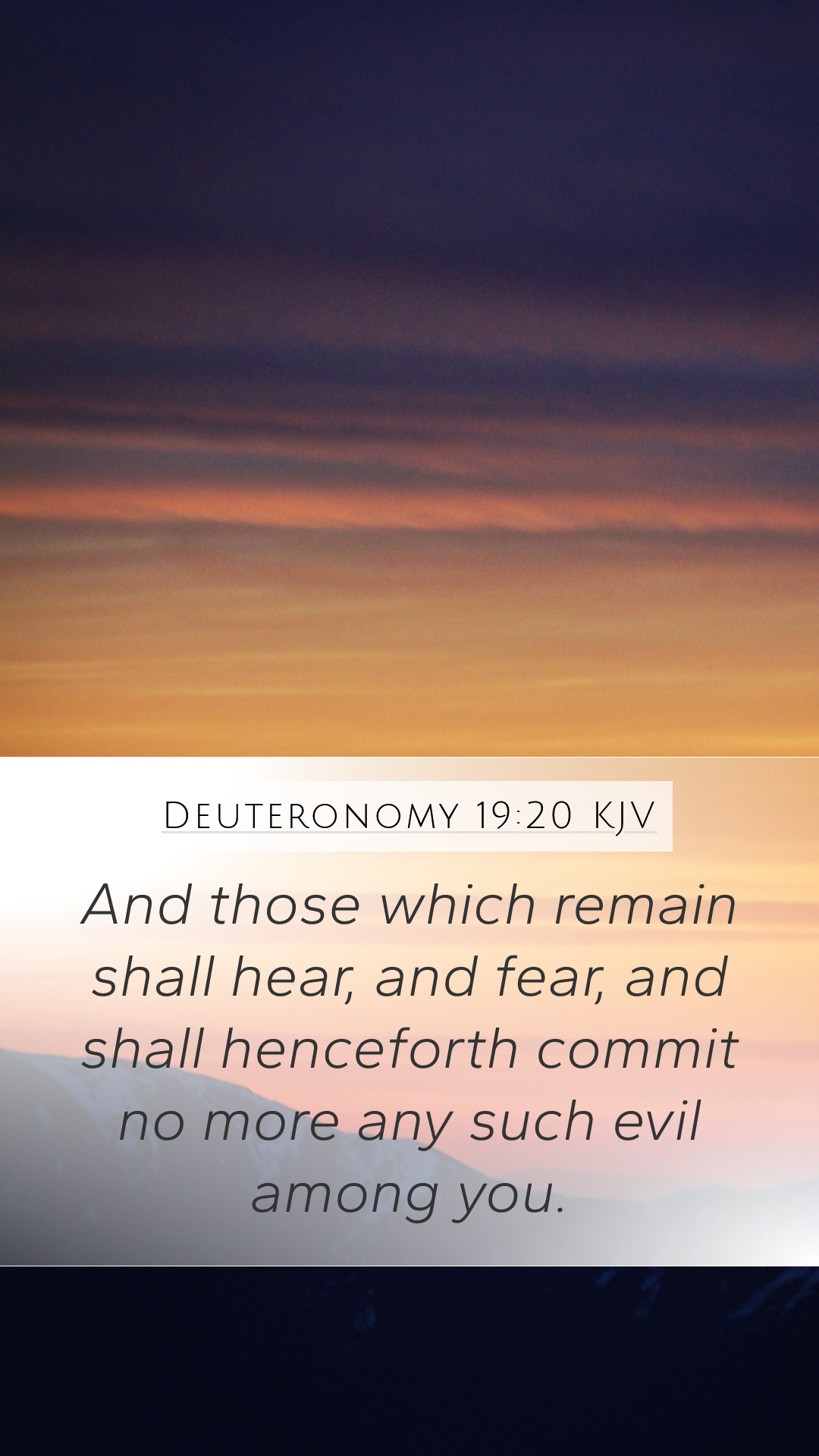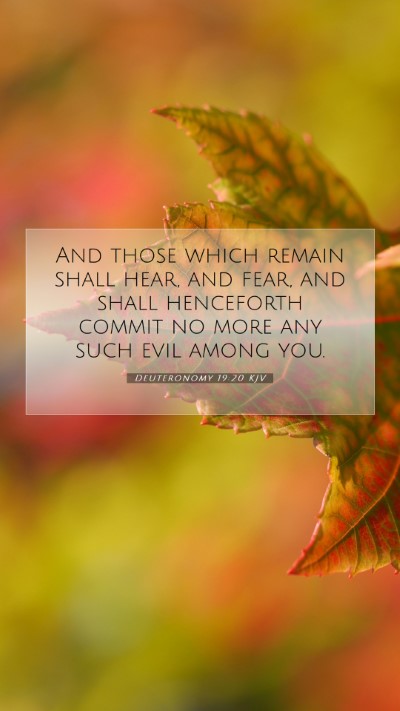Understanding Deuteronomy 19:20
Bible Verse: Deuteronomy 19:20
"And those which remain shall hear, and fear, and henceforth shall never commit any more any such evil among you."
Overview
The verse Deuteronomy 19:20 addresses the manner in which justice and the fear of the Lord are to be maintained within the community of Israel. It calls for the removal of evil influences and provides a framework for ensuring that wrongdoing is not perpetuated.
Bible Verse Meaning
The essence of Deuteronomy 19:20 revolves around the themes of justice, accountability, and communal integrity. According to interpretations from Matthew Henry, the verse emphasizes the need for public accountability in dealing with sin. By ensuring that those who witness an act of wrongdoing are made aware of the consequences, a culture of fear towards evil actions is established among the people.
Bible Verse Interpretations
- Matthew Henry: Henry underlines the importance of public witnessing in deterring ungodly behavior. He explains that when wrongdoing is punished, it serves not only as a punishment to the offender but also as a warning to onlookers who might otherwise commit similar offenses.
- Albert Barnes: Barnes elaborates on the idea that the “remainers” or witnesses of the punishment will hear about the actions taken and will thus learn to fear Yahweh’s wrath. This is meant to instill a moral compass within the community, encouraging adherence to divine laws.
- Adam Clarke: Clarke notes that this verse establishes a principle of deterrence; it illustrates that through justice there can be preservation of order. He argues that when one sees the consequences of sin, it instills a profound respect for divine commandments.
Scripture Analysis
The passage takes place in the context of Israelite law, where communal and judicial procedures played a vital role in maintaining societal morals. Understanding this verse provides crucial insights into how biblical teachings have sought to create a society grounded in righteousness.
Implications of the Verse
This verse carries significant implications for modern readers:
- Promoting Justice: The need for accountability and just punishment serves as a guide for modern society in addressing wrongdoing.
- Community Awareness: Community must play a role in fostering a culture that condemns evil and channels positive behavior.
- Fear of God: It is a reminder to cultivate awe and reverence for God's law, which helps in guiding personal and communal ethics.
Application in Daily Life
For today’s believers, applying the lessons from Deuteronomy 19:20 may look like:
- Engaging in open discussions about moral values within Bible study groups.
- Using Bible study tools to explore the consequences of sin in sacred history and its relevance today.
- Fostering environments where accountability is present, promoting a culture of honesty and righteousness.
Cross References
This verse can be better understood when viewed alongside:
- Exodus 20:20: “And Moses said unto the people, Fear not: for God is come to prove you, and that his fear may be before your faces, that ye sin not.”
- Leviticus 24:16: “And he that blasphemeth the name of the LORD, he shall surely be put to death.”
- Proverbs 19:25: “Smite a scorner, and the simple will beware: and reprove one that hath understanding, and he will understand knowledge.”
Conclusion
Deuteronomy 19:20 encapsulates profound principles of justice, accountability, and fear of God that resonate throughout the scriptures. Engaging deeply with this verse enhances one's Bible study insights, enriching not only personal understanding but also communal faith practices. Integrating these lessons into daily living offers a transformative approach to one’s relationship with God and others.


